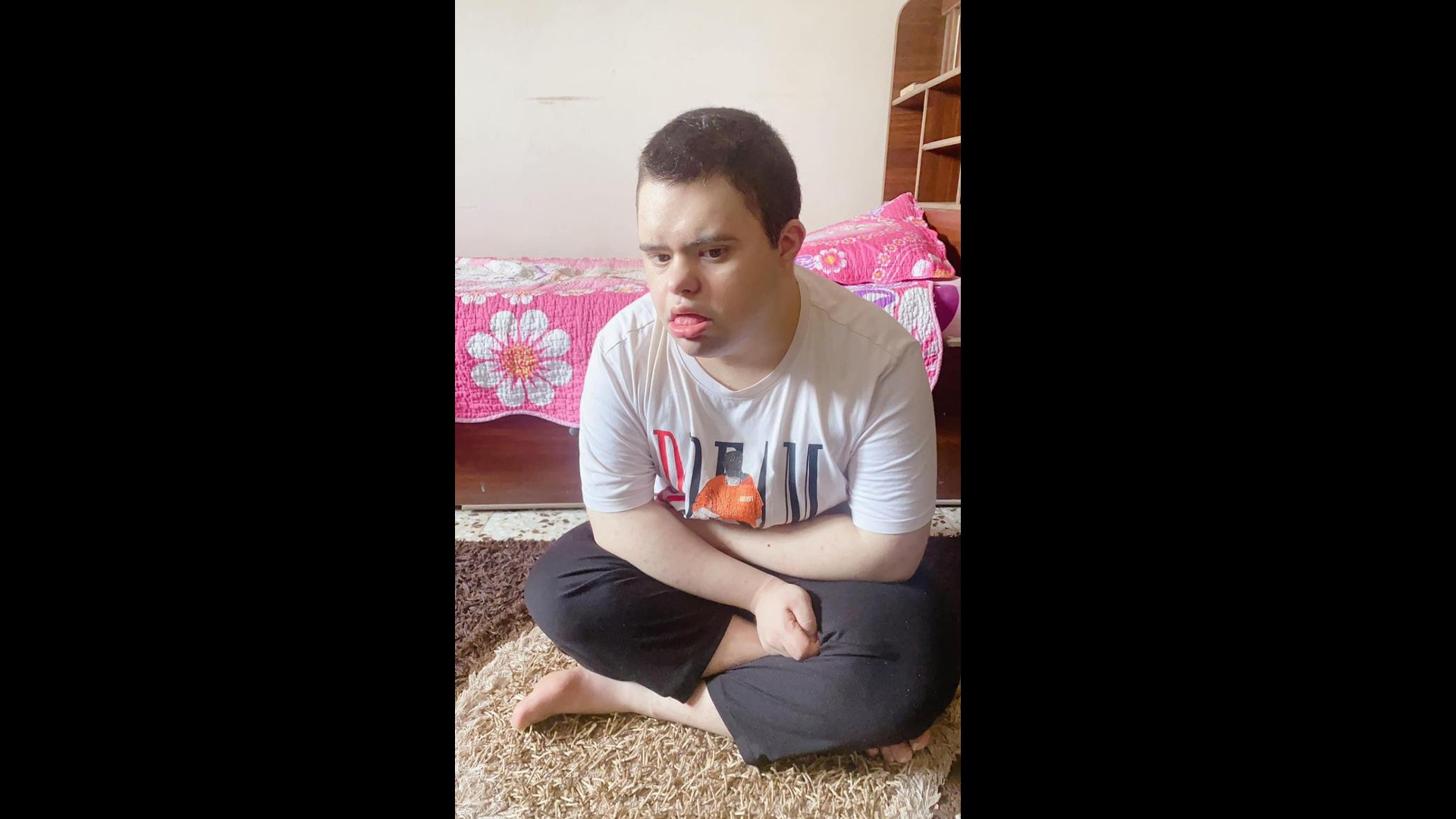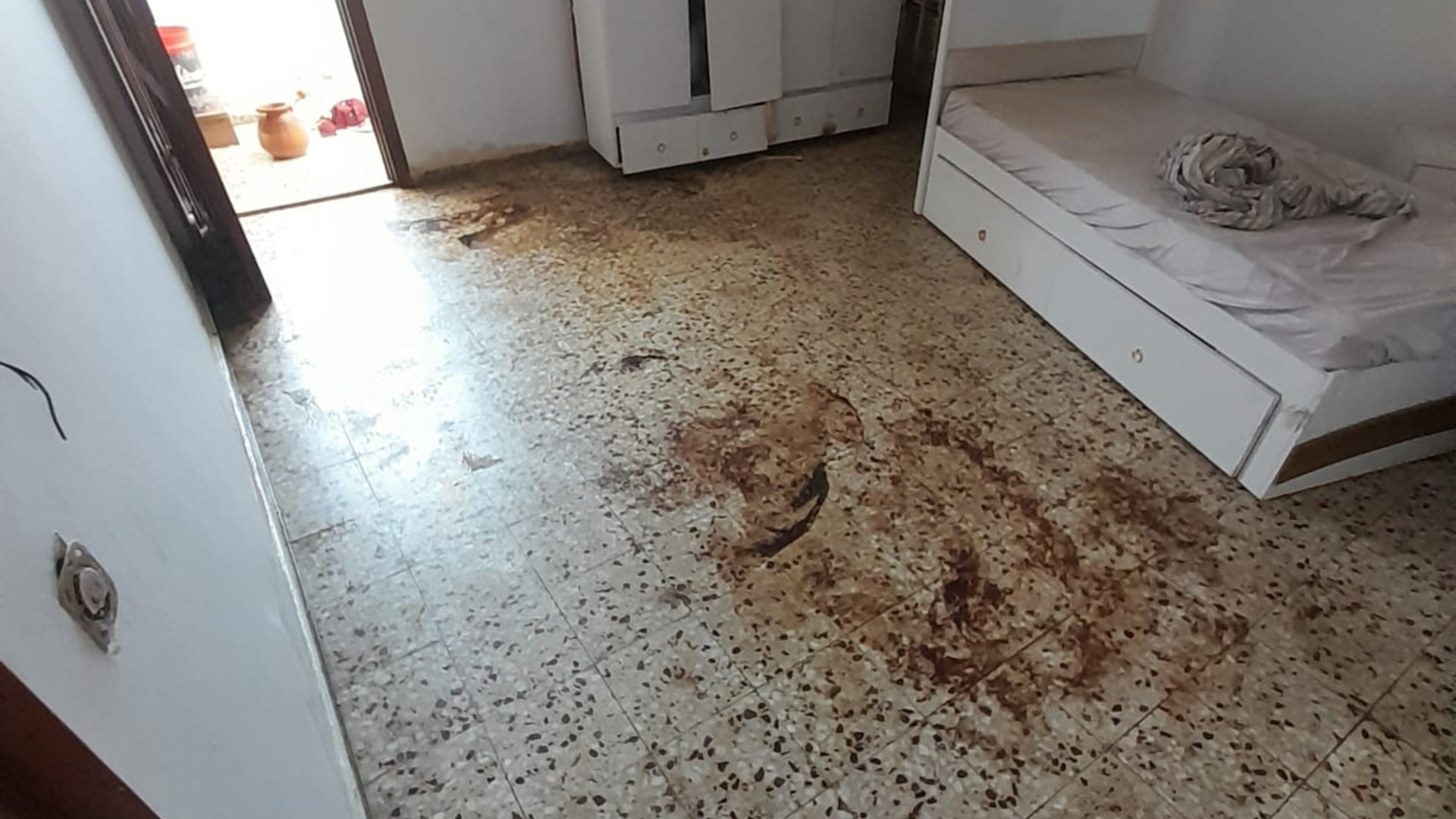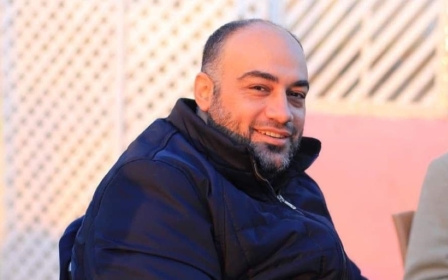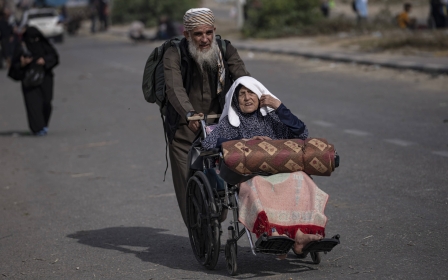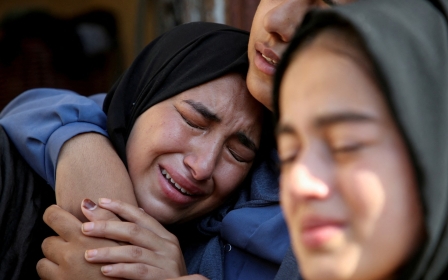Gaza: Palestinian with Down syndrome ‘left to die’ by Israeli soldiers after combat dog attack
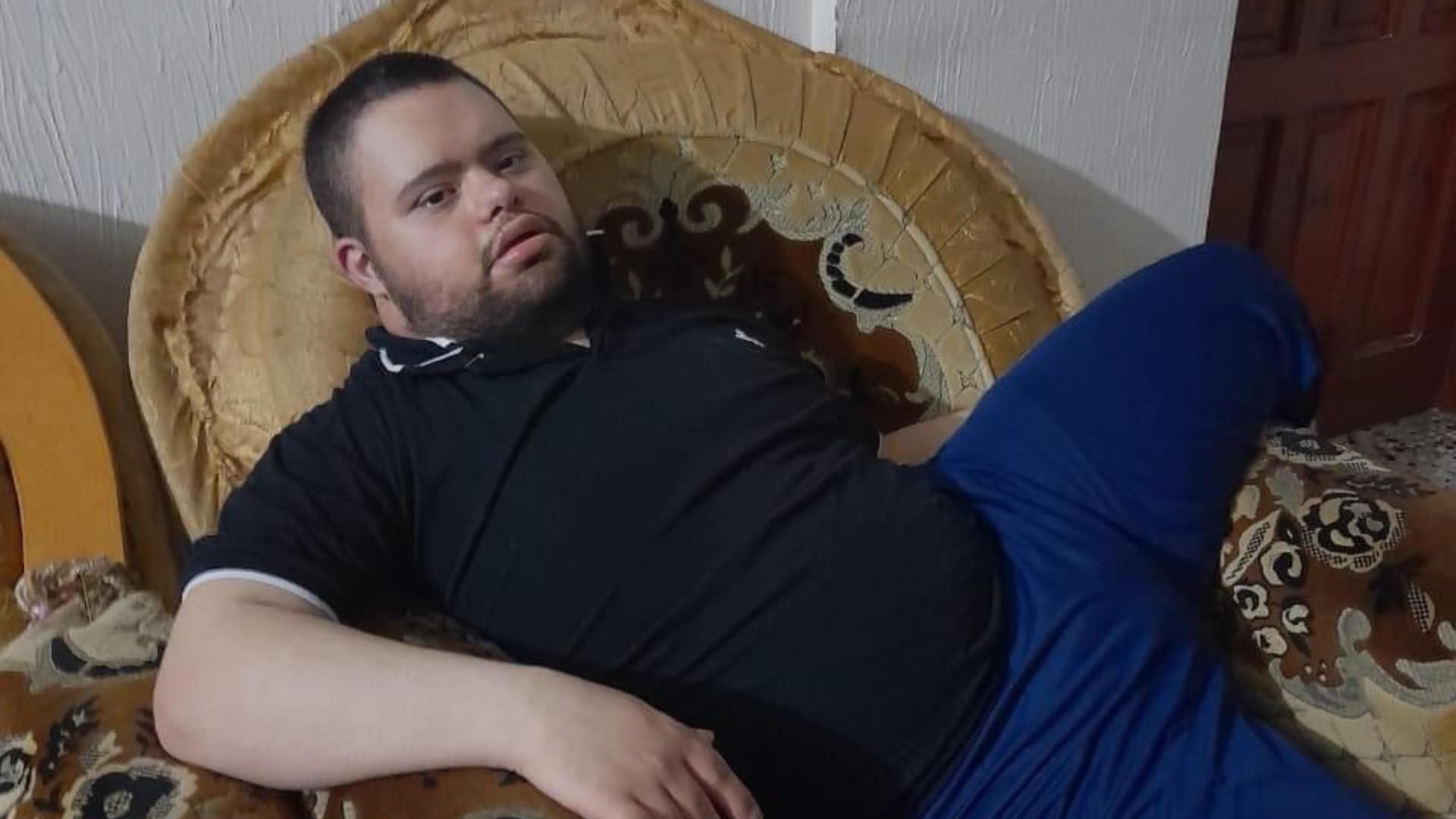
Editor's note: This article contains details and images that may be disturbing to some readers
Desperate screams as he struggled to free himself from a combat dog unleashed by Israeli soldiers.
This is the last image Nabila Ahmed Bhar recalls of her son Muhammed, 24, who had Down syndrome.
The Palestinian family were hiding in their home in eastern Gaza City’s Shujaiya neighbourhood when Israeli troops stormed it, Bhar told Middle East Eye.
Dogs were sent in first, which attacked Muhammed and started mauling him.
New MEE newsletter: Jerusalem Dispatch
Sign up to get the latest insights and analysis on Israel-Palestine, alongside Turkey Unpacked and other MEE newsletters
Soldiers then expelled everyone from the house, except for Muhammed, who was taken to a separate room.
Unable to see him, Bhar could only guess his fate from the screams as she was forced to leave the area at gunpoint.
'I cannot bear to think of what they did to him, or how they left him to die like this'
- Nabila Ahmed Bhar, Muhammed's mother
Seven agonising days of waiting passed before Israeli troops finally withdrew from Shujaiya.
The family rushed back to the apartment on Wednesday. They found Muhammed's decomposing body with worms eating his face.
"I cannot stop thinking of his screams and the image of him trying to free himself,” said Bhar.
Muhammed’s Down syndrome was severe, she explained. His mental development “was at the level of a baby” according to her.
“Muhammed was very innocent. He could not understand… He couldn't grasp anything.
"He was like a one-year-old. I used to feed him and change his diaper.
“I cannot bear to think of what they did to him, or how they left him to die like this."
‘There is no Muhammed’
Israeli troops raided Shujaiya under the cover of heavy air strikes on 27 June.
For two weeks, they continuously bombed the densely populated area, stormed houses and expelled tens of thousands of people.
Many families were trapped in their homes, like Bhar’s.
The 71-year-old told MEE the family was besieged for a week before Israeli troops stormed it.
There were 16 people inside, including Bhar’s two sons, their wives and children.
The children hid in the bathtub to take cover from the heavy Israeli fire.
But Muhammed, who was heavy and often refused to move, was kept in the safest corner of the living room the family could find.
"Before this recent displacement, we had been displaced at least five other times, and he wouldn't understand where we were going,” she explained.
“Because he was obese, he would get tired and sit every few steps.”
When Israeli troops arrived, they unleashed their dog first, which immediately jumped on Muhammed.
"The dog bit his chest, then started biting and mauling his arm. Muhammed was screaming and trying to free himself as the blood poured,” Bhar recalled.
“Muhammed could not speak or say any word, but out of horror, he was screaming at the dogs, sometimes saying ‘wala, wala' [hey you], and sometimes ‘Khalas ya habibi’ [enough, my dear].
“I don’t know how he uttered these words; we had never heard him speak before.”
When the soldiers entered, Bhar pleaded with them to take the dog off her son as she tried to explain that he was disabled.
'I could hear Muhammed humming in pain'
- Nabila Ahmed Bhar, Muhammed's mother
They eventually did, but took Muhammed to a separate room from everyone else.
“I told the soldier 'Let Muhammed come here' but he told me 'No, we will treat him,'" said Bhar.
When she heard him scream for water hours later, she asked the soldier to bring him some.
But the soldier replied that there was a “specific [type] of water for him”.
“I could hear Muhammed humming in pain. Now and then, they would open the door, look at him, and say ‘Oskot’ [Arabic for stay silent], then close it again,” Bhar said.
"The soldiers then gestured to each other. A doctor who came with them entered the room, and Muhammed suddenly went silent.”
Bhar suggests the doctor injected him with a sedative, but she could not see or hear him after that.
“I asked the soldier, 'Where is Muhammed?' He told me, 'Muhammed is gone.' I asked again, 'Gone where?' He answered, 'He's gone. There is no Muhammed,” she told MEE.
The family was then forced to leave the house and head to the west of Gaza City, leaving Muhammed behind.
Body decayed
The family contacted the Red Cross daily for the next seven days, pleading for Muhammed's release or medical treatment. The Red Cross kept telling them the Israeli army was not cooperating.
Jebril, Muhammed's older brother, was the first to return to the house after Israeli troops pulled out earlier this week.
When he entered the room where Muhammed was kept, he saw it covered with blood and fluids seeping from his body as it began to decompose.
“He was lying on his stomach, his body had decayed and worms had begun to eat his face," Jebril, 43, told MEE.
A tourniquet was put on his wounded left arm, probably to stop the bleeding, he added.
“Based on the state of his body, it was evident he had died several days earlier.”
MEE obtained footage of the body but could not publish it due to its extremely graphic nature.
Since the beginning of its ground invasion of Gaza, the Israeli army has systematically used combat dogs to search buildings, including hospitals.
In many cases, the dogs were allowed to attack and maul civilians.
Last month, Al Jazeera released leaked footage from a camera attached to an Israeli military dog, which showed it biting and dragging an elderly Palestinian woman in her home.
With hospitals in Gaza not operating and roads devastated by Israeli bombardment, Jebril said he was unable to call an ambulance or transport Muhammed’s body to a cemetery.
It was not even possible to register his death, he told MEE.
“I had to bury him near the house,” he said.
“There's about a one-metre space between our house and my uncle’s.
“That's where I buried Muhammed.”
Middle East Eye delivers independent and unrivalled coverage and analysis of the Middle East, North Africa and beyond. To learn more about republishing this content and the associated fees, please fill out this form. More about MEE can be found here.


